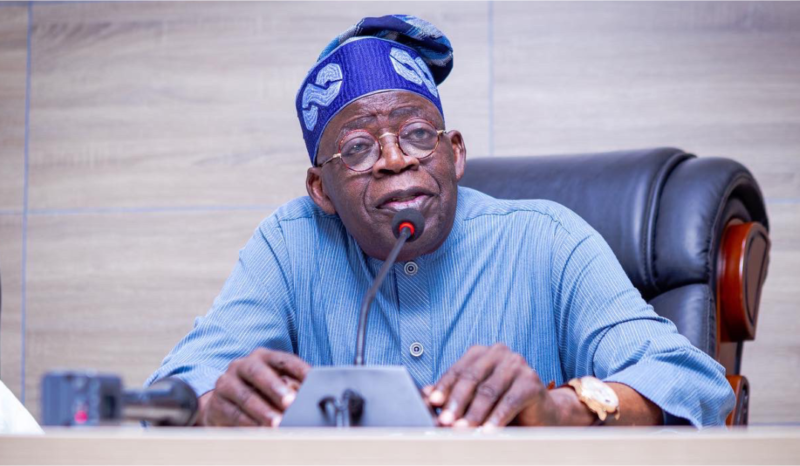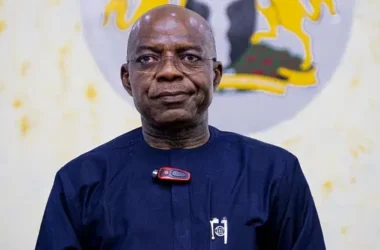President Bola Tinubu’s decision to sack Mele Kyari as the Group Chief Executive Officer of the Nigerian National Petroleum Company Limited (NNPCL), along with other board members, was due to concerns over their performance and failure to meet key production targets.
Presidency officials revealed that the decision was necessary to revamp the oil sector and ensure Nigeria meets its crude oil and gas production goals.
In a statement, Tinubu’s Special Adviser on Information and Strategy, Bayo Onanuga, confirmed the shake-up, stating that all board members appointed alongside Kyari in November 2023 were also removed. To replace them, Tinubu appointed Bayo Ojulari as the new Group CEO, effective April 2, 2025, along with an 11-member board.
“The new 11-man board has Bayo Ojulari as the Group CEO and Musa Ahmadu-Kida as non-executive chairman,” Onanuga said.
Multiple Presidency officials familiar with the matter stated that the decision was based on poor performance, with some members of the former board accused of stagnating progress.
One official, speaking anonymously, said, “The President did this because of their performance because we needed to do things differently. The former people were taking us in circles, and then some of them became part of the problem.
“There needs to be a new direction. You need new people to bring new energy into the system.
“Look at them. Every one of them is capable. They are core industry professionals, real industry experts who know the industry inside and out. They are not politicians. This is the first time we have an entire cast of technocrats.”
Another official stated that the government had clear performance metrics for the NNPCL, including increasing oil production to 2 million barrels per day by 2027 and 3 million barrels per day by 2030. Gas production was also set to rise to 10 billion cubic meters by 2030. However, the former board failed to make significant progress toward these goals.
The official explained, “It is not about (Kyari’s) age. The NNPCL is a limited liability company and is not governed by civil service rules. So, it’s not about his age. There is always a need to get new brains that can deliver in new directions. The President has his mandate, which is clearly stated in the statement. He gave them his performance metrics, such as the amount of crude we produce. He asked them to review all blocks because we want to know which ones are producing and which are not.
“We have to optimise those that are not producing. He wants them to review all our assets within a certain period and give us good production. By 2030, they must be producing 3,000,000 barrels per day, and between now and 2027, we must stabilise at 2,000,000 per day. Then, gas, we must produce 10 billion cubic meters between now and 2030. These are performance metrics, and that is how it should be done.
“But the former system was not giving us that. They have been around the same spot for years. Our OPEC quota has not improved much since 1973. We have not been able to meet them. That is why reforms are important.”
The NNPCL has also been dealing with challenges such as pipeline vandalism, underinvestment, and ageing infrastructure. In addition, Kyari’s removal came amid tensions over the company’s refusal to sell crude to the Dangote refinery in naira, which led to a fuel price hike from N860 per litre to over N930.
With Kyari and his board removed, the new leadership is expected to focus on increasing production and attracting investment into the sector. Tinubu has directed the new board to conduct a strategic review of NNPCL’s assets and joint ventures, ensuring they align with the government’s economic goals.
The new board members, drawn from different regions of the country, include:
Bello Rabiu (North West)
Yusuf Usman (North East)
Babs Omotowa (North Central, former MD of NLNG)
Austin Avuru (South-South)
David Ige (South West)
Henry Obih (South East)
The Ministry of Finance will be represented by Lydia Jafiya, while Aminu Said Ahmed will represent the Ministry of Petroleum Resources.
Tinubu has also set new investment targets for the NNPCL, aiming to grow sector investments from $17 billion in 2024 to $30 billion by 2027 and $60 billion by 2030. In addition, the government wants NNPCL to refine at least 200,000 barrels of crude oil per day by 2027 and increase that figure to 500,000 by 2030.









